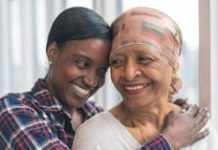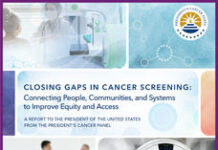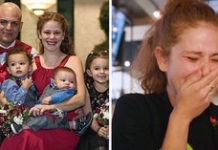
Cancer in My Community is a Cancer.Net Blog series that shows the global impact of cancer and how people work to care for those with cancer in their region. Mona Hassan, MD, graduated from Beirut Arab University, Faculty of Medicine in Beirut, Lebanon. She is currently a PGY3 internal medicine resident at the American University of Beirut Medical Center. Dr. Hassan aims to continue her fellowship in hematology-oncology with a focus on bone marrow transplantation and CAR T-cell therapy. Dr. Hassan has no relevant relationships to disclose. You can follow Dr. Hassan on Twitter.
Why I care for people with cancer
I went into internal medicine residency knowing that I wanted hematology-oncology as my fellowship. This was because of several people with cancer I met during medical school who really affected me. People with cancer are living through a challenging time with very high stakes, which can be very costly to them and their families on an emotional, physical, and financial level.
But why I chose to spend the rest of my life taking care of people with cancer is honestly hope. A decade ago in Lebanon, you could not have looked in the face of a young person with acute myeloid leukemia (AML), acute lymphocytic leukemia (ALL), diffuse large B-cell lymphoma (DLBCL), lung cancer, pancreatic cancer, or multiple myeloma and tell them there was hope. Now, you can tell them with absolute confidence there is hope. This is all because of the amazing science, development, and groundbreaking discoveries that have happened recently in this field.
What is particularly close to my heart is the relationship I get to build with my patients. People with cancer can spend months in and out of the hospital, and I end up becoming friends with them. In cancer care, you see people who, despite suffering, often continue to display the highest level of courage and morale. This is what made and still makes me fall in love with this specialty every day.
What cancer is like in Lebanon
Demographics in Lebanon are a little different than in other countries. This is because Lebanon has 2 communities: the Lebanese community, which constitutes around 4 million people, and the refugee community, which constitutes around 2 million people. The overall number of new cancer cases in Lebanon is 11,589, with 6,438 cancer deaths distributed over both communities, according to the International Agency for Research on Cancer. However, the prevalence of cancer, access to treatment, and treatment outcomes vary significantly between the Lebanese community and the refugee community due to multiple demographic factors.
Fortunately, we have a lot of well-trained oncologists in Lebanon, and the field is still growing. However, not all people have equal access to health care because there are few specialized cancer centers, and most of those centers are in the capital city of Beirut.
How Lebanese people with cancer access care
In Lebanon, all Lebanese patients have access to medication through multiple pathways, including social security, medical insurance, or the Ministry of Public Health. Most medications are provided for free or for a rather small financial charge, but getting approved for a medication involves a long process of paperwork to receive approval, and some medications may not be covered.
It should also be noted that the degree of financial coverage is not the same for all medications, procedures, and imaging tests, as the cost varies between the different insurances. It used to be otherwise, but unfortunately, after the August 2020 Beirut explosion and with the current economic crisis in which Lebanon has the second highest inflation rate in the world and our currency losing most of its value, a lot of medications are missing from the market. This has led oncologists needing to change treatment regimens to use available alternatives. Some medications, however, cannot be found or have no available alternatives, so people with cancer and their families try to get the medication from abroad through relatives or even by traveling themselves.
How cancer care differs for refugees in Lebanon
For refugees in Lebanon, cancer care is disastrous. Refugees are not covered by the Ministry of Public Health, so they depend mainly on non-governmental organizations, the United Nations, and the United Nations Relief and Works Agency (UNRWA) for aid in order to get access to cancer diagnosis and treatment.
However, most of these organizations do not cover the full cost of treatment, which puts the burden of the financial cost on the person with cancer and their family. For those unable to afford it, it leaves the families with great sorrow and guilt. If you pass through the refugee camps, you hear a lot of sad stories of people with cancer who started treatment but were not able to finish all the cycles because of the costs of care. Because of that, unfortunately, treatment for the cancer is often unsuccessful.
This really sheds light on the importance of cancer care among refugees and in conflict areas, even in the middle of war and displacement. Refugees are human beings who did not choose to be in the situation they are, and they deserve equal access to treatment. It is my goal to help work on this problem, being someone who came from this background and who has witnessed firsthand its devastating effects.









